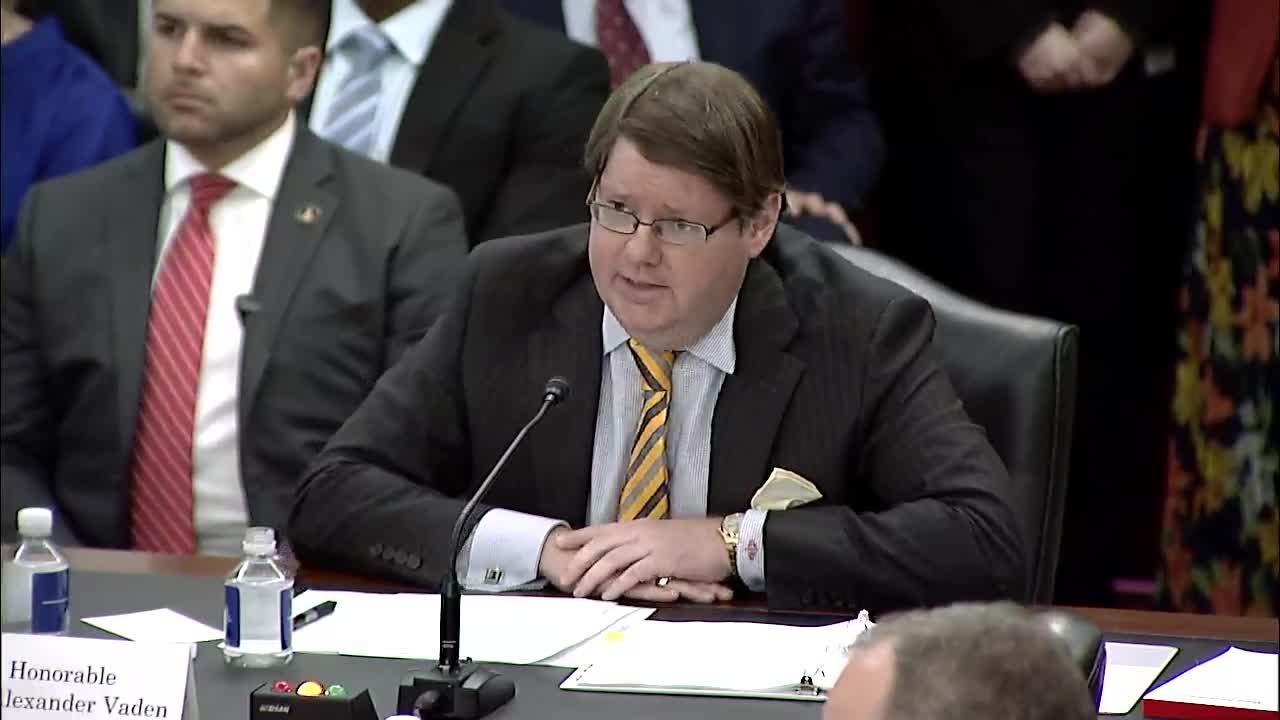Senator Highlights Benefits of Trump's Tariffs for American Agriculture and Manufacturing
July 30, 2025 | Agriculture, Nutrition, and Forestry: Senate Committee, Standing Committees - House & Senate, Congressional Hearings Compilation
This article was created by AI summarizing key points discussed. AI makes mistakes, so for full details and context, please refer to the video of the full meeting. Please report any errors so we can fix them. Report an error »

In a recent meeting of the U.S. Senate Committee on Agriculture, Nutrition, and Forestry, discussions centered around the implications of President Trump's tariffs and the proposed reorganization of the USDA, particularly the Forest Service. These topics are crucial as they directly impact American agriculture and forestry services.
One of the most significant points raised was the assertion that President Trump's tariffs are yielding positive results for American agriculture. A senator highlighted that these tariffs have led to new trade deals, potentially opening markets in Europe for American products, including ethanol. The senator emphasized that a substantial portion of the U.S. corn crop is used for ethanol production, and the anticipated demand from countries like the UK and EU could significantly benefit American farmers. Additionally, the senator noted a resurgence of manufacturing jobs returning to the U.S. as a result of these tariffs, suggesting a broader economic impact that could enhance long-term trade agreements.
However, the meeting also addressed concerns regarding the proposed reorganization of the USDA, particularly the Forest Service. Two letters were presented during the discussions: one from the National Association of Forest Service Retirees, which expressed strong opposition to the reorganization, arguing that it could severely hinder the Forest Service's ability to deliver essential services and conduct vital research. Another letter from the American Federation of Government Employees, representing many USDA employees, echoed these concerns, indicating a significant apprehension among workers about the potential effects of the reorganization.
The discussions in this meeting highlight the ongoing tension between trade policy and organizational changes within the USDA. As the committee continues to evaluate these issues, the implications for American agriculture and forestry services remain a focal point for stakeholders across the nation. The outcome of these discussions could shape the future landscape of both sectors, influencing everything from job creation to environmental management.
One of the most significant points raised was the assertion that President Trump's tariffs are yielding positive results for American agriculture. A senator highlighted that these tariffs have led to new trade deals, potentially opening markets in Europe for American products, including ethanol. The senator emphasized that a substantial portion of the U.S. corn crop is used for ethanol production, and the anticipated demand from countries like the UK and EU could significantly benefit American farmers. Additionally, the senator noted a resurgence of manufacturing jobs returning to the U.S. as a result of these tariffs, suggesting a broader economic impact that could enhance long-term trade agreements.
However, the meeting also addressed concerns regarding the proposed reorganization of the USDA, particularly the Forest Service. Two letters were presented during the discussions: one from the National Association of Forest Service Retirees, which expressed strong opposition to the reorganization, arguing that it could severely hinder the Forest Service's ability to deliver essential services and conduct vital research. Another letter from the American Federation of Government Employees, representing many USDA employees, echoed these concerns, indicating a significant apprehension among workers about the potential effects of the reorganization.
The discussions in this meeting highlight the ongoing tension between trade policy and organizational changes within the USDA. As the committee continues to evaluate these issues, the implications for American agriculture and forestry services remain a focal point for stakeholders across the nation. The outcome of these discussions could shape the future landscape of both sectors, influencing everything from job creation to environmental management.
View full meeting
This article is based on a recent meeting—watch the full video and explore the complete transcript for deeper insights into the discussion.
View full meeting